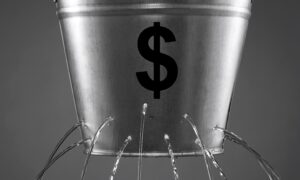
On July 1, the Old Dominion implemented a fresh state budget, with a specific provision that impacts both bettors and online sportsbooks in Virginia.
The recently passed legislation effectively eliminates a tax loophole which permitted seven state sportsbooks to evade paying millions in tax revenue.
The cost of Virginia’s tax loophole
Before July 1, operators in Virginia were permitted to subtract expenses related to promotions and bonuses from their adjusted gross incomes. Following the deductions, the tax rates were applied, resulting in Virginians losing 43.7% of their taxable revenue.
Since its launch in 2021, Virginia has generated approximately $390 million in total gross gaming revenue. However, due to a tax loophole, operators only reported $26.7 million in taxable revenue after subtracting around $168.8 million in bonuses and promotions.
Only 5 out of the 12 sports gaming operators in Virginia have paid taxes so far. The companies that have paid include:
- Barstool Sports
- BetMGM Sportsbook
- DraftKings Sportsbook
- Hard Rock Sportsbook
- FanDuel Sportsbook
Operators find it advantageous to be profitable as tax revenue generated from online gaming is projected to support state programs and similar initiatives. By offering player bonuses, operators attract new customers, ultimately leading to increased profits over time. This strategy can be likened to a bar providing a complimentary drink, as the recipient is more inclined to spend more that night and is more likely to become a repeat customer.
However, the tax cuts in Virginia did not result in the desired outcome. Delegate Mark Sickles, a Democrat from Fairfax, initially attempted to eliminate the tax loophole through his unsuccessful bill HB1103. Nevertheless, the loophole has been reintroduced in the new budget.
The implementation of this new bill will not be immediate. Operators will have the option to deduct expenses for bonuses and promotions for the next 12 months, starting from the first month they begin receiving wagers related to sports betting. In Virginia, the new budget will generate increased revenue for state initiatives.
Regrettably, Virginia bettors may anticipate a decrease in the availability of promotions and bonuses.
Virginia isn’t for bettors — at least not on college games
During a prior General Assembly session, a bill was passed to prohibit operators from utilizing the catchphrase “Virginia is for bettors,” which cleverly alludes to the state’s official slogan “Virginia is for lovers.”
Despite an unsuccessful attempt earlier this year, the bill aiming to revoke Virginia’s prohibition on college sports betting did not pass, thus rendering it unlawful to place bets on college sports in the state. Furthermore, the July 1 budget also prohibits student-athletes from profiting off their name, image, or likeness (NIL) through casinos or betting, which includes sports betting.
NIL deals are now prohibited in the new budget.
- Alcohol products
- Adult entertainment
- Cannabis, cannabinoids, cannabidiol, or any related substances
- Dangerous or controlled substances
- Performance-enhancing drugs, such as steroids and human growth hormone, can improve athletic performance.
- Drug paraphernalia
- Cigarettes and e-cigarettes
- Weapons, such as firearms and ammunition
Definition of illegal gambling
The recent budget announcement confirmed changes to certain gambling-related definitions, such as skilled games and illegal gambling. According to the amendment, illegal gambling is now defined as:
“The act of engaging in any form of gambling within the Commonwealth involves the act of making, placing, or receiving a bet or wager, involving the exchange of money or other valuable items, with the possibility of winning a prize, stake, or other valuable items, contingent upon the uncertain outcome of a game, contest, or any event, regardless of whether it takes place within or outside the boundaries of the Commonwealth.”
This subdivision defines the act of making, placing, or receiving bets or wagers, regardless of any conflicting provisions in this section. It includes the purchase of a product, Internet access, or any other item in exchange for a chance to win a prize, stake, or any valuable consideration. This applies to the operation of a gambling device as described in subdivision 3 b, regardless of whether the chance to win such prize, stake, or consideration may be offered without making a purchase.
Skill games language also makes budget
One justification for distinguishing skill games from legal games of chance, like slot machines, is that skill games necessitate a certain degree of skill to play as opposed to relying solely on luck.
Lawmakers remained silent in June regarding the inclusion of language pertaining to skill games in the new budget.
Despite this, the budget highlights that:
The term “Illegal gambling” encompasses the act of playing or offering to play any game that requires skill.
Skill games are now defined by the new language.
Gambling devices cannot be deemed any less so if they can predict the outcome of some operations in advance, but not all. Furthermore, their classification as gambling devices is not diminished even if they have the capacity to sell or provide something valuable through means other than chance.
The significance of this definition lies in the close examination that ensued after the implementation of a ban on skill games in July 2021. In June, Hermie Sadler, a businessman and former NASCAR driver, took legal action against the state, aiming to halt the prohibition of skill games in his establishments.
Sadler’s ongoing litigation might encounter some difficulties, as indicated by Virginia’s latest budget amendment.





